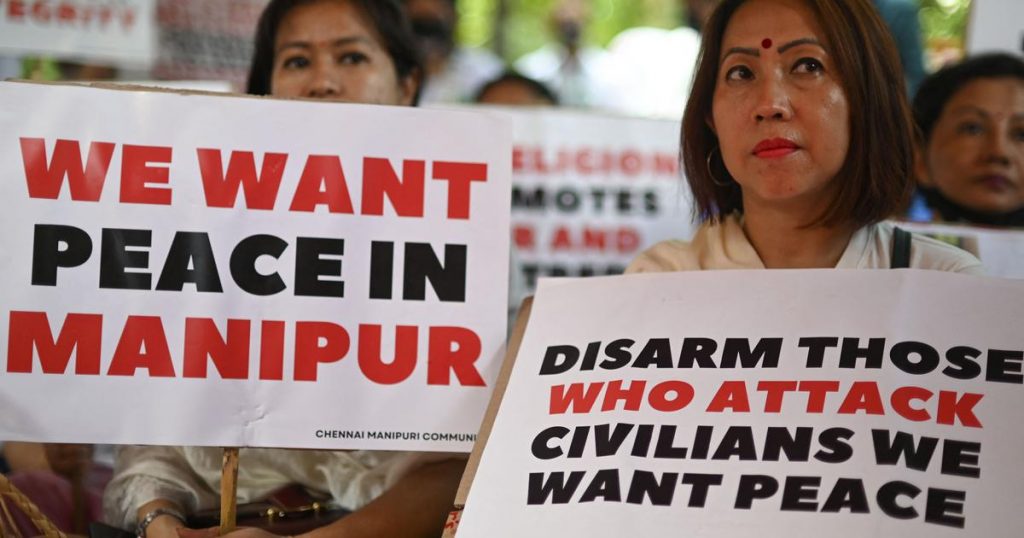Conflicting accounts have surfaced regarding a recent meeting aimed at resolving the ongoing ethnic crisis in Manipur. The meeting, held in New Delhi and facilitated by the Ministry of Home Affairs (MHA), saw the participation of Kuki, Meitei, and Naga legislators for the first time since the unrest began 17 months ago.
The meeting, initiated by the MHA, included approximately 20 legislators from Manipur’s Meitei, Kuki-Zo-Hmar, and Naga communities. Key attendees comprised eight Meitei MLAs, including four ministers and Speaker Th Satyabrata, four Kuki-Zo-Hmar MLAs, including two ministers, and three Naga MLAs. Notably absent were Union Home Minister Amit Shah and Manipur Chief Minister N Biren Singh.
According to an official release from the MHA, the legislators collectively resolved to appeal for peace and urged all communities in Manipur to eschew violence to prevent further loss of innocent lives. This appeal followed Home Minister Amit Shah’s earlier statement emphasizing the need for dialogue between the Kuki and Meitei communities to resolve the crisis.
Contrary to the MHA’s unified resolution narrative, sources revealed that the meeting was held in two separate sessions: one with Kuki MLAs and another with Meitei and Naga MLAs. This division highlights the persisting deep schism between the Meitei and Kuki communities.
The Kuki Suspension of Operations (SoO) groups, comprising the Kuki National Organization (KNO) and the United People’s Front (UPF), stressed the necessity for Kuki-Zo MLAs to attend such meetings while maintaining their stance on a Separate Administration for the Kuki-Zo people as a prerequisite for lasting peace.
The ethnic violence in Manipur, which erupted on May 3, 2024, has resulted in over 220 deaths and displaced more than 50,000 people. The conflict primarily involves the Kuki and Meitei communities, with significant ramifications for the region’s stability.
The recent meeting in New Delhi underscores the complexities in achieving peace in Manipur. While the MHA’s statement suggests a unified appeal for non-violence, the underlying divisions between the involved communities remain a significant challenge. The next steps in the peace process are yet to be determined, with future meetings anticipated to further address these critical issues.



